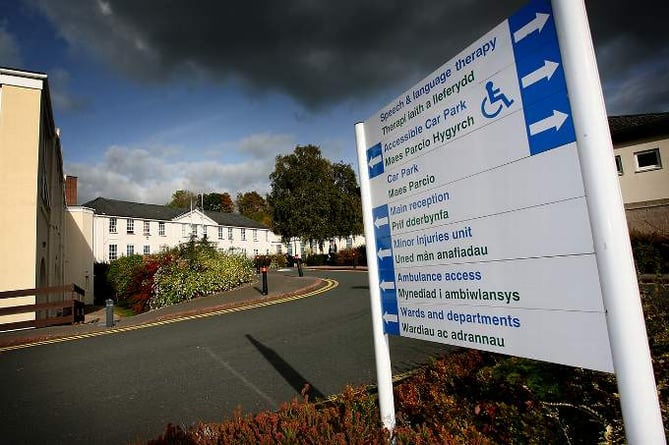The meeting at the Brecon Castle Hotel held on August 28 provided a good opportunity for councillors, politicians and the community to represent the views of many to the chairman and representatives of Powys Teaching Health Board about proposals to change opening time arrangements at Brecon MIU.
I thought all sides put their views frankly and there was clearly an understanding of where each party “was coming from” in terms of safety and the costs of providing it within a fragmented Wales service.
There was clearly much frustration about the fact that Powys did not have its own District General Hospital due to its rambling rural size and position, with patients being referred to various hospitals for various conditions: the Grange, Cwmbran; Prince Charles Hospital; the Royals Gwent and Glamorgan, Hereford and other smaller hospitals. Ambulance response times and transport for patients and family to all these places was cited as a serious problem, particularly for those without cars who might have to catch several buses or use costly taxis.
On the starting subject of the Brecon MIU proposals, despite several speakers recalling instances where lives had been saved due to the intervention of MIU staffs, the Health Board were at pains to point out that the unit was meant to treat minor injuries only, and locals should not delay calling 111 or 999 in serious cases or where lives could be at risk through delays in attending other units initially. Views differed clearly and there was some degree of alarm at how formal consultations with some important shareholders had not been undertaken at an earlier stage.
Later in the meeting the Health Board’s executive defended comments that the organisation was “over-managed” and that savings from dealing with this could help fund front line services. Herein lies a major, major question about health service administration and the issue of clinical governance (basically, best practice, universally applied). Clearly as long as the Westminster Government holds the purse strings to Wales’ rural funding issues, organisations can find themselves in a straightjacket in funding, a mix of services to the public’s satisfaction of outcomes being achieved. Ultimately and long term, the NHS should be run by a Royal Commission to take it out of short-term five-year tennis politics.
However, currently we have several Health Boards throughout Wales, but do they genuinely act together in a co-ordinated “National” Health Service. Is best practice being universally applied? And do they communicate and share patient records both efficiently and effectively? There appear to be many examples of this not being the case, with consequences.
In a service where funding is tight to provide increasing new costly treatments and serving an increasingly ageing population, could some administrative changes actually provide more cash into the system? When patients visit units or hospitals there are administration costs at the point of entry. If patients are being treated out of their own Health Board area, agreements have to be reached about how costs will be re-charged across services, across Health Boards. Here we have further administration costs between Boards. How can this potentially be remedied? How about one Strategic Health Authority operating nationally across Wales with a senior tier of doctors across disciplines and executives actually operating as a single management and medical agency where best practice (clinical governance) doesn’t vary across different areas, but is indeed universally applied at a stroke, no “ifs or buts”. Where records on a universal computer system actually work, from GPs to clinics, to units and hospital consultants.
Operationally, clearly local staffs remain needed, but the overarching structure and strategic approach could prevent services remaining fragmented at various financial and other more personal costs.
NHS decision-making must surely be made on the basis of patient outcomes and experiences of the service, and these need to be captured by consistently applied data on a universal/similar system used by all branches of service, and utilised strategically.
On balance, within an integrated NHS service with MIU effectively helping to triage patients to take the heat off A/E and Outpatient services at other hospitals and whilst supporting Out of Hours services, I feel the argument for a 24/7 MIU has been qualified.
Name and address supplied





Comments
This article has no comments yet. Be the first to leave a comment.